BOU ethical policy
IBIS – the international journal of avian science
IBIS is published on behalf of BOU by Wiley-Blackwell Publishing and we support Wiley-Blackwell in their policy on ethical issues in relation to scientific publications (see https://authorservices.wiley.com). Authors should make themselves familiar with this policy. In particular the BOU requires that all authors disclose any potential sources of conflict of interest. Any interest or relationship, financial or otherwise, that might be perceived as influencing an author’s objectivity is considered a potential source of conflict of interest. These must be disclosed when directly relevant or indirectly related to the work that the authors describe in their manuscript. Potential sources of conflict of interest include but are not limited to patent or stock ownership, membership of a company board of directors, membership of an advisory board or committee for a company, and consultancy for or receipt of fees from a company. The existence of a conflict of interest does not necessarily preclude publication in this journal.
It is the responsibility of the corresponding author to review this policy with all authors and to collectively list in the covering letter to the Editor, in the manuscript (under the Acknowledgment section), and in the online submission system ALL pertinent commercial and other relationships. As part of the submission process, corresponding authors will be asked to confirm whether or not a conflict of interest exists.
The BOU is a member of and subscribes to the principles of the Committee on Publication Ethics (COPE).
The BOU expects all authors of papers submitted to Ibis to act within the standards and procedures laid down by UK national or equivalent legislation in the country where the work is conducted. They must ensure they have the necessary licences and permits for the activities described in the paper. Where work is carried out in places lacking legislation or where this is not adequately administered, the work should conform to the ethical standards expected in the UK.
The BOU expects authors to have proper regard for conservation considerations and best practice in work with wild or captive animals. Attention is drawn to the ‘Guidelines for the Use of Animals in Research’ published regularly in the journal Animal Behaviour (Animal Behaviour 2006, 21:245-253) and the specific guidance provided by ASAB/ABS for submissions to Animal Behaviour. In particular authors should consider the potential impacts of disturbance, trapping, and manipulations such as marking or tagging on their study animals and provide details in the paper on how these aspects have been dealt with. Papers will not be accepted if they are based on work involving cruelty to animals or if the work may have put at risk endangered populations, species or habitats.
The BOU is not opposed in principle to the ‘taking’ of specimens from the wild for scientific purposes but would expect that only in exceptional circumstances is such an approach adopted. Authors are referred to the guidelines on collecting of specimens from the wild proposed by Collar (Bird Conservation International 2000, 10: 1-15).
Grants and bursaries
The ethical approach required for the submission of papers to Ibis will also apply to proposals submitted for BOU grants or bursaries. The application should include details of any potential conflicts of interest and the procedures adopted to minimise any negative impacts on the study animals.
Image credit
Sacred Ibis © Dominic Sherony | CC-BY-2.0 via Wikimedia Commons


